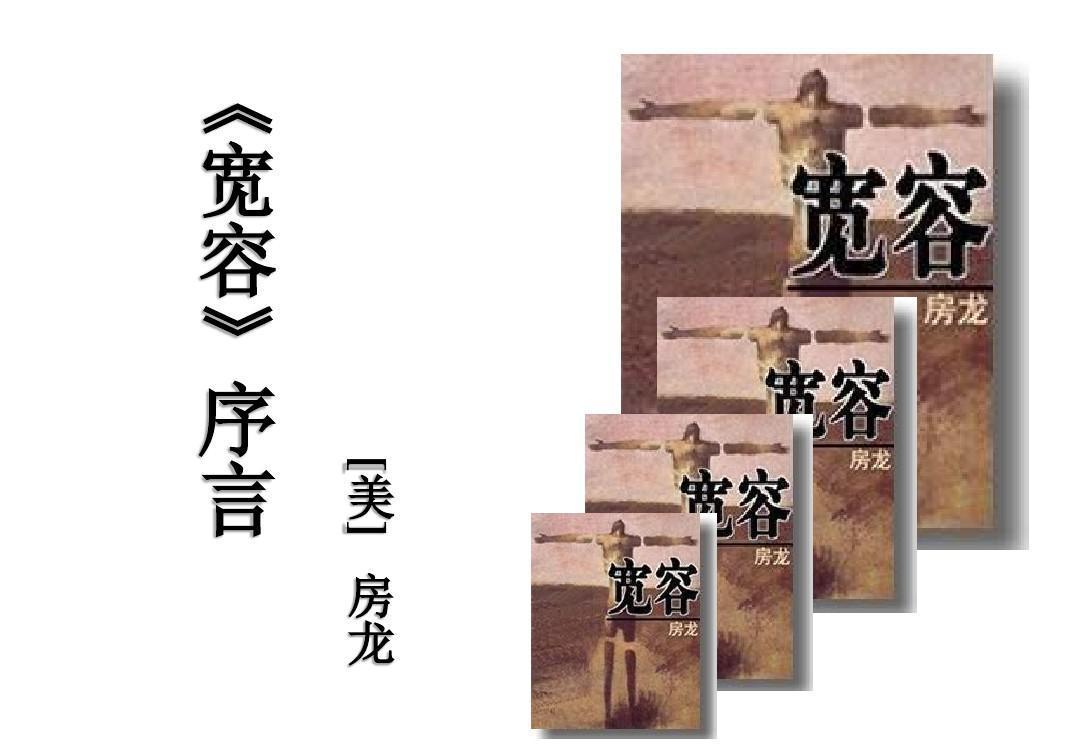Tolerance, by Fang Long, first published in 1925, presents a series of portraits of pioneers who fought for tolerance in chronological order. Because we look at history from the perspective of the growth and ups and downs of tolerance and intolerance, we are unique, and we have obtained its own unique evaluation of historical events and characters, so that the whole history presents a new and different picture before us. In fact, it became an interlocking epic that surveyed the entangled poles of the human spirit's enslavement and emancipation, and a stumbling track for a more diverse world.

Fang Long is not an emotionalist, and he has not unrealistically placed tolerance in the eternal kingdom of heaven. Rather, it is a sober point of view that tolerance is not a category of symbiosis with human beings.
In fact, in ancient human society, there was no question of tolerance or not. For at that time the individuality is overwhelmed by the overriding commonality of survival; and without individuality, without difference, there is no dissent, and thus there is no object of tolerance, which eliminates the question of tolerance. "The struggle for tolerance did not begin until after the discovery of individuality" (p. 19) This means that it arose only in ancient Greek times. After the ancient Greek era, the struggle for tolerance was entangled with Christianity. Much of the book's ink is devoted to examining the historical evolution of religious tolerance. For a long time, tolerance and religious tolerance were two words. Striving for tolerance is essentially about gaining one's own unique right to interpret the Bible, of forgiving people to fellowship with God in their own way. In a word, it is to strive for the pluralism of Christianity, and then to strive for the pluralism of religion.
Opening the book "Tolerance", there are shocking official intolerances committed by appalling atrocities, which fill almost all the space-time fields of human civilization. From the imprisonment of Anaxagoras to the poisoning of Socrates; from the mass execution of Christians by Emperor Nero to the bloody crusades of the Crusades; from the burning of Seivitus to the extermination of the Anabaites; from Bruno being burned at the stake by the Inquisition to the burning of Jews by Hitler,... Intolerance is circulating unbridledly, and there seems to be no end in sight. This makes one have to ask the question: Why is it that human beings are so stupid and cold-hearted that they turn a blind eye to the tragedies caused by intolerance, do not repent, and repeat their sins? Is this intolerance rooted in human nature?
In Fang's view, intolerance stems from deep-seated human fears, self-defense instincts, and natural exclusivity as a social animal. Fear refers to the fear of group members that heresy will endanger the survival of the whole. Intolerance is a defensive instinct of society to sustain its own existence. This is so because human beings are still too young, because human existence has so far been completely shrouded in terror. They are not yet strong enough to enjoy a colorful and tolerant way of being.
And this instinct for self-defense is reinforced by a state of mind nourished by social activity. This psychology is the "exclusivity" mentality. "Human beings have always been 'social animals', and only when one feels that one belongs to an exclusive group of fellow travelers whose members are bound up with the beliefs, prejudices, preferences, fears, hopes, and ideals that he has inherited, can he truly be happy." (p. 392) This sense of well-being often derives from various titles and beliefs: God's chosen people, God's people, superior race, aristocratic ancestry, ethnic (chauvinist) doctrine of superior class origin, racism, conformity of belief, and so on. Although the titles are different, the essence is the same. If an individual is thrown out of the circle, he will be afraid and happy. In order to avoid this outcome, it is inevitable to join the intolerance of the group. So the sad brush began.